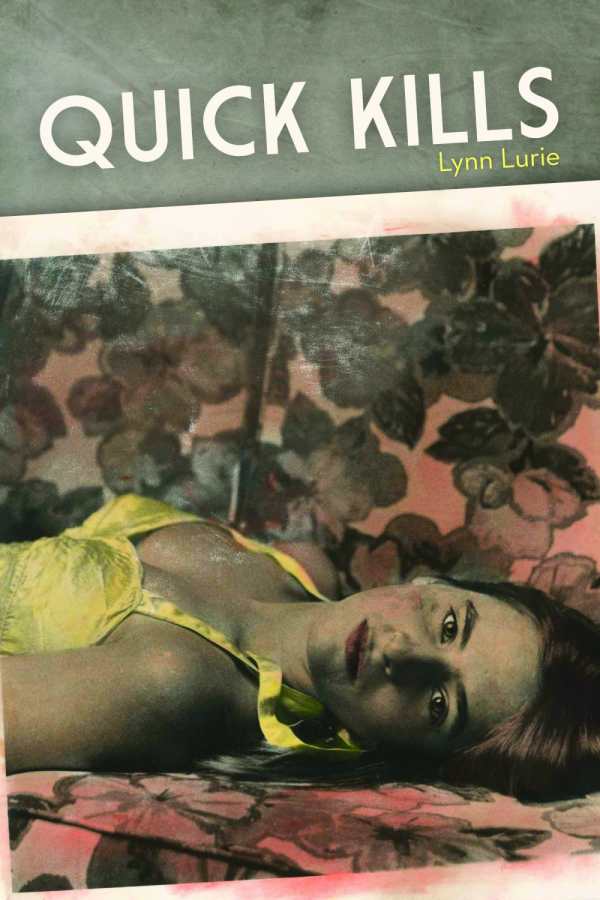Quick Kills
Rock-bottom self-esteem, along with a desire to please, reaches a treacherous psychological cliff in Lurie’s frighteningly realistic novella.
Art and pornography vie for prominence in this ultrasophisticated yet sordid take on fashion and photography. A compilation of literary snapshots, Quick Kills, by Lynn Lurie, exposes the dark side of a glamorous profession by revealing the damaging impact on a young woman’s mind.
Told in concise snippets and presented like a fictional scrapbook with no chapter headings, this near-stream-of-consciousness approach to storytelling allows a glimpse into the inner turmoil aroused in a dysfunctional environment with insufficient supervision. As this troubled soul tells of her experiences in an imprecise rendering of activities, each scene contributes a significant piece to understanding a rather puzzling progression of events. The narrator emphasizes her impressions and her emotions, never giving away the complete picture. Much is left to interpretation, rather than articulating the obvious in definitive terms. In this scene, for instance, the narrator subjects herself to a self-loathing parody:
I go back alone and shimmy the legs of my tripod into the sand and photograph my naked torso, mimicking the way I must have looked when he pinned me there. I make a necklace with the seaweed and draw the torso of a girl in the sand using a piece of driftwood, no wider than a twig. At the neck I place the seaweed linked together to form a chain and adorn it with shells. The girl’s face has no features and no expression.
Intentionally vague and dangerously discreet, the relationship between the narrator and an older man, referred to as the Photographer, is a precarious mixture of friendship and abuse. Rock-bottom self-esteem, along with a desire to please, reaches a treacherous psychological cliff—a trip into the mad artistry of a selfish lover’s world of weirdness. Unpleasant, yet strangely intriguing, every mesmerizing page delves into a dismal existence that must reach an eventual end.
The book explores an affluent family’s tendency to downplay conflict and understate trauma. As the narrator describes in succinct detail her memorable moments and her jarring experiences, her background comes into focus. Then with greater clarity, family, friends, and acquaintances play an essential part in every skewed decision. Rather than a “don’t look” warning, the story invites everyone to gawk at uncomfortable situations.
Quick Kills is Lurie’s second fiction release. A potent command of language enables this gifted author to leave an unforgettable mark on those who have lived through her work.
Reviewed by
Julia Ann Charpentier
Disclosure: This article is not an endorsement, but a review. The publisher of this book provided free copies of the book to have their book reviewed by a professional reviewer. No fee was paid by the publisher for this review. Foreword Reviews only recommends books that we love. Foreword Magazine, Inc. is disclosing this in accordance with the Federal Trade Commission’s 16 CFR, Part 255.

